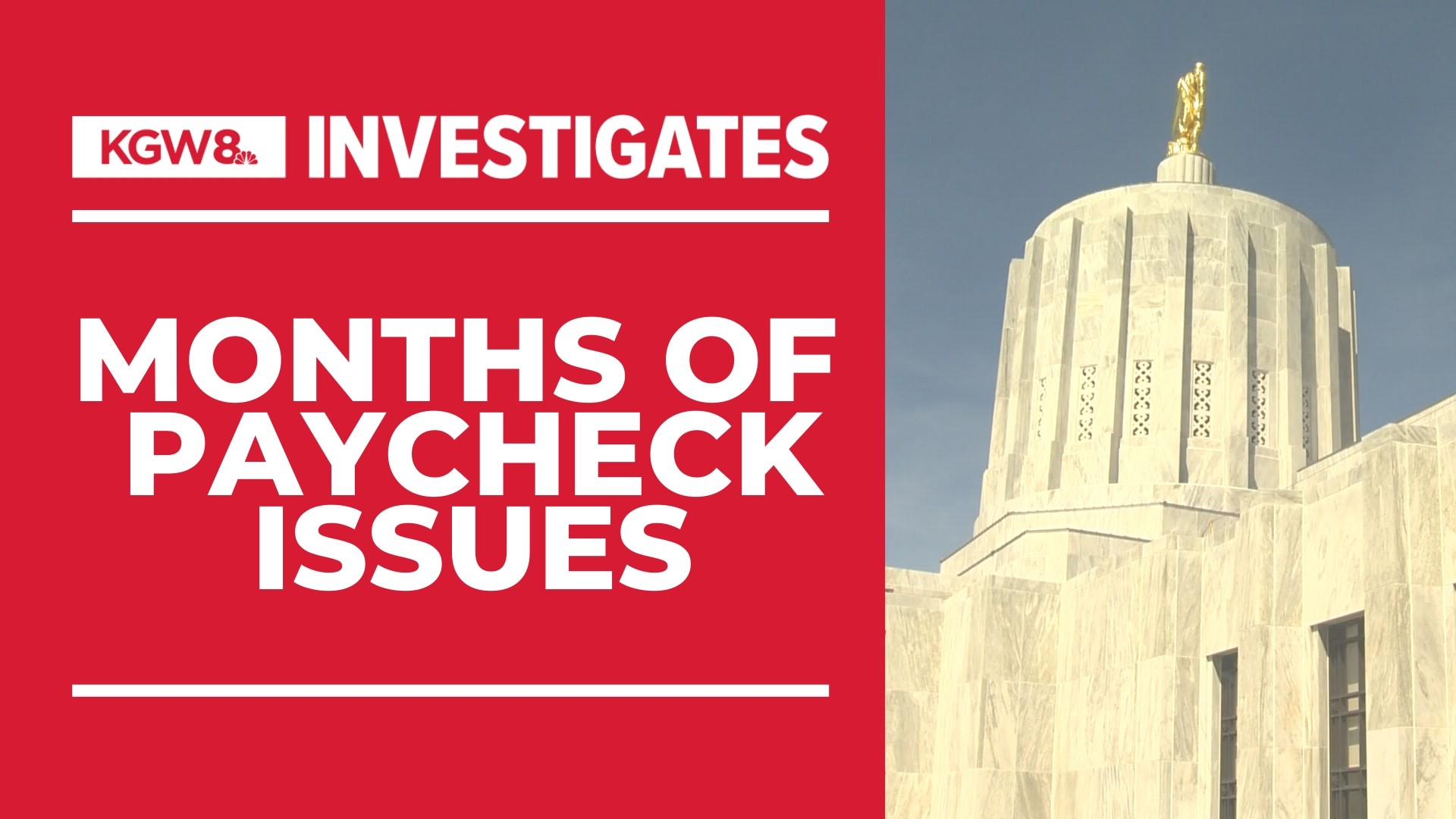SALEM, Ore. — Thousands of Oregon state employees are still struggling to get paid correctly, months after the state switched payroll systems at the start of 2023.
The payroll problems have sparked multiple lawsuits and complaints from frustrated workers.
"We’re state employees, we’re public servants, but we’re also Oregonians," said Andrea Kennedy-Smith, a paralegal for Oregon's Child Welfare Services and president of SEIU Local 503, OPEU Local 200, the union representing thousands of public service workers and care providers. "We’re serving the most vulnerable populations that there are, and now we’re going to foodbanks with them."
Oregon changed its employee payroll system at the start of 2023, ditching a system built in the 1980s for Workday Payroll and Time Tracking.
Since then, the state has cycled between fixing payroll problems and responding to new ones that have been reported by state workers.
"The way this system was built, it was not built for government employees," said Kennedy-Smith.
There are about 43,000-45,000 state employees, with the total count shifting based on seasonal positions.
On the first pay day using Workday, January 3, the Oregon Department of Administrative Services (DAS) reports about 4,500 employees were impacted by system issues - including 2,800 overpayments and 1,700 underpayments.
On February 1, DAS reports 2,767 state employees received incorrect paychecks, including 2,200 underpayments.
The issues continued on March 1, with 2,151 employees affected - most of whom were overpaid.
DAS spokesperson Andrea Chiapella told KGW that they noticed additional system errors leading to underpayments on the March 31 payroll date, but the total number of workers affected is still under review.
"We were able to intervene and ensure that those employees were made whole the same day or one business day later," Chiapella said.
DAS listed union dues and medical deductions as the main issues for state workers from March 31.
Chiapella said DAS' top priority is to ensure that every employee is paid correctly and on time.
"We are very sorry for the strain this has caused on some members of our workforce," she said in a statement. "We are taking a more measured approach to allow for more time to identify, test and implement solutions we are certain will create permanent system solutions. We believe we are on the right track, but we are not quite there yet. However, we do know that the majority of employees are being paid accurately each month."
Still, state workers such as Kennedy-Smith said they're frustrated and surprised that Oregon has failed to resolve all payroll issues, four months after the state's transition.
Other state employees talked to KGW about their concerns, but requested to stay anonymous.
"DAS has been saying it’s less and less errors and employees being impacted but even one employee being impacted is unacceptable," Kennedy-Smith said.
Chiapella said state officials tested the Workday payroll system before implementation to reduce problems.
However, they wouldn't have had to look far to see potential pitfalls.
In 2019, Multnomah County switched its payroll system to Workday, which led to employees noticing errors on their paychecks and suing the county for payment.
In April 2022, Multnomah County agreed to pay $2.5 million dollars to settle a class action lawsuit filed by corrections deputies, alleging thousands of employees were underpaid.
As a result of the current issues, Oregon is now facing lawsuits of its own.
Employees filed a class action claim at the end of January in Multnomah County Circuit Court.
It was amended on March 23, with employees claiming the State of Oregon has incorrectly paid employees and violated numerous wage laws, claiming that the state should have known about systemic problems through better testing of Workday before it went live.
A group of corrections workers filed another lawsuit against the state in February.
Kennedy-Smith said the past few months have been chaotic.
She wants an audit of employee pay and believes there are issues that are being missed because other state employees don’t know how to read their new pay stubs.
"We’re committed to our communities, but we also really deserve to be paid on time," she said. "We rely on our paychecks just like everyone else."
Chiapella said DAS expects to have more data on the March 31 payroll issues by the end of April.
She added the department plans to include a more detailed breakdown of the types of ongoing issues they've tracked along with how and if those issues were resolved before employees were negatively impacted.
A Workday spokesperson responded to KGW's inquiries with a statement: "Customer service is a core value and we have a proven track record of helping public and private sector customers successfully transition to the cloud to support their people and finances."
The Workday spokesperson did not answer KGW's questions about the Oregon state payroll transition and implementation, workers' claims that the system isn't well-suited for government employees, why these problems are occurring, and what kind of support, if any, Workday is offering to resolve issues.

